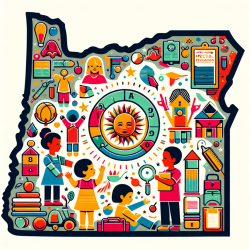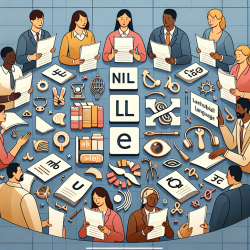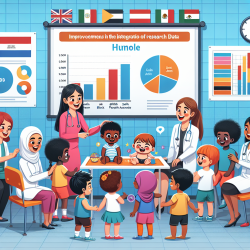Early childhood is a critical period for growth and development, and for children with disabilities, access to appropriate services can make all the difference. In Oregon, the Early Intervention and Early Childhood Special Education (EI/ECSE) services provide essential support to children from birth to age five, ensuring they receive the Free and Appropriate Public Education (FAPE) mandated by the Individuals with Disabilities Act (IDEA).
In this blog, we'll delve into the significance of EI/ECSE services in Oregon, the impact of the Student Success Act, and the range of services provided to young children and their families.
Early Intervention and Early Childhood Special Education and the Student Success Act
On May 20, 2019, Oregon Governor Kate Brown signed House Bill 3427, known as the Student Success Act, into law. This groundbreaking legislation funds three crucial accounts:
- The Early Learning Account
- The Student Investment Account
- The Statewide Education Initiatives
The Early Learning Account is particularly significant as it provides funding for EI/ECSE programs. This funding aims to ensure that service levels are adequate for children with disabilities, from birth to five years old, and their families.
What is the Early Intervention/Early Childhood Special Education Service System?
Oregon’s EI/ECSE services create a seamless support system for the developmental and educational needs of young children and their families. These programs ensure that children who qualify for special education receive the support they need to thrive.
Key aspects of the EI/ECSE service system include:
- Free evaluations and screenings for children from birth to five years old
- Provision of free services for eligible children
What Does the Program Provide?
Local EI/ECSE programs offer free screenings or evaluations to assess children’s development. These evaluations determine whether special education supports can help build skills to further individual developmental progress. Here are some areas these programs focus on:
- Social/Emotional Skills: How children play with and respond to others
- Adaptive Skills: Self-care abilities like dressing and feeding themselves
- Cognitive Skills: Learning and problem-solving capabilities
- Fine Motor Skills: Use of small muscles, such as pinching or grasping objects
- Gross Motor Skills: Use of large muscles, like climbing, walking, or running
- Expressive Communication: How children communicate through gestures, spoken words, or sign language
- Receptive Language: Understanding of language, including directions, words, signs, or gestures
What is the Cost?
One of the most significant advantages of Oregon’s EI/ECSE programs is that evaluations and screenings are free for children from birth to five years old. Moreover, children who are found eligible for these services receive them at no cost, ensuring that financial barriers do not impede access to essential support.
In conclusion, the Early Intervention and Early Childhood Special Education services in Oregon play a vital role in supporting the developmental and educational needs of young children with disabilities. Through the funding provided by the Student Success Act, these programs continue to offer free and appropriate education, helping children achieve their full potential.
For more information, please follow this link.










